AudioParam
The AudioParam interface represents audio-related parameter (such as gain property of GainNode`).
It can be set to specific value or schedule value change to happen at specific time, and following specific pattern.
a-rate vs k-rate
a-rate- takes the current audio parameter value for each sample frame of the audio signal.k-rate- uses the same initial audio parameter value for the whole block processed.
Properties
| Name | Type | Description | |
|---|---|---|---|
defaultValue | number | Initial value of the parameter. | Read only |
minValue | number | Minimum possible value of the parameter. | Read only |
maxValue | number | Maximum possible value of the parameter. | Read only |
value | number | Current value of the parameter. Initially set to defaultValue. |
Methods
setValueAtTime
The above method schedules an instant change to the value at given startTime.
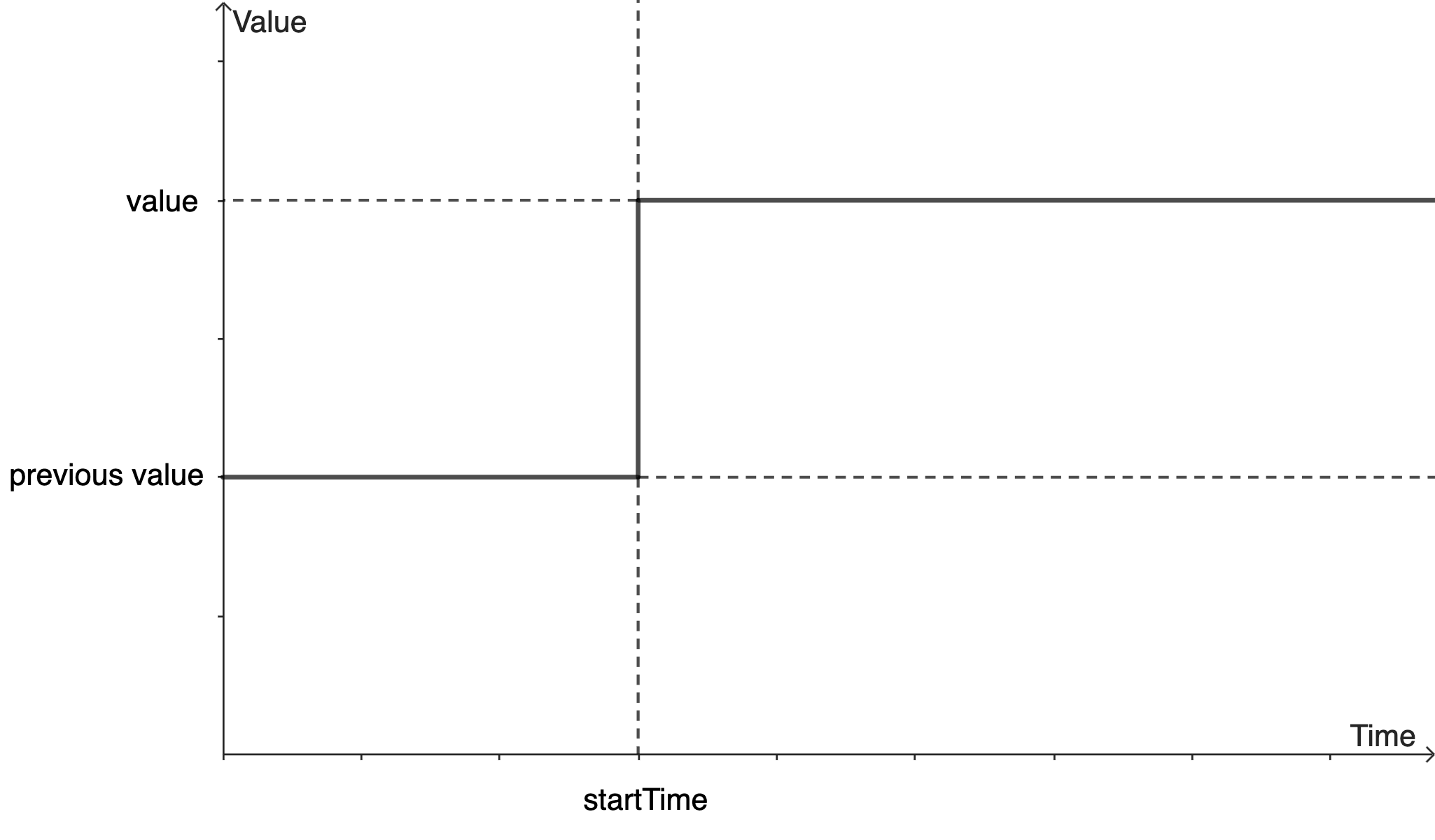
| Parameters | Type | Description |
|---|---|---|
value | number | A float representing the value the AudioParam will be set at given time |
startTime | number | The time, in seconds, at which the change in value is going to happen. |
Errors:
| Error type | Description |
|---|---|
RangeError | startTime is negative number. |
Returns AudioParam.
linearRampToValueAtTime
The above method schedules a gradual linear change to the new value.
The change begins at the time designated for the previous event. It follows a linear ramp to the value, achieving it by the specified endTime.
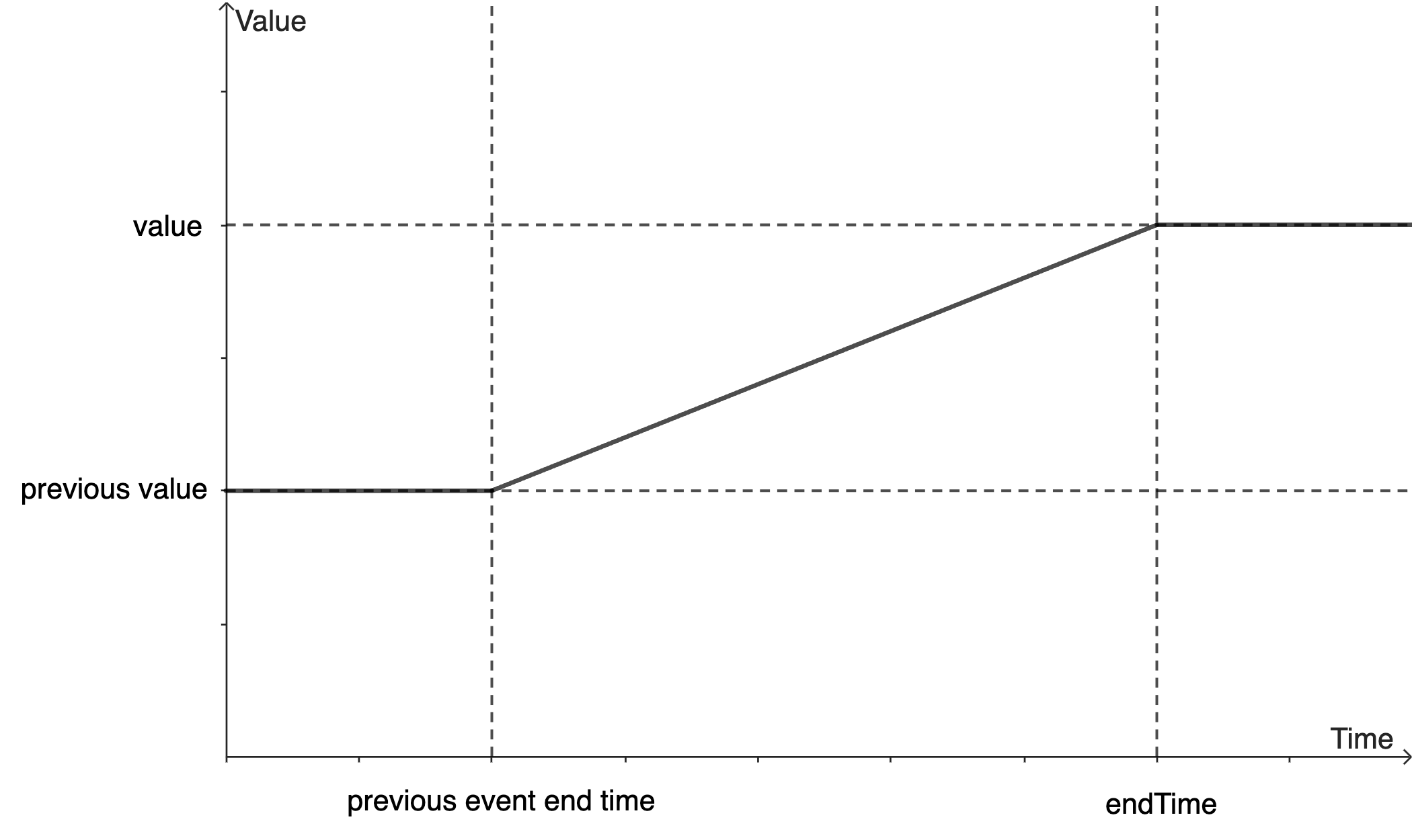
| Parameters | Type | Description |
|---|---|---|
value | number | A float representing the value the AudioParam will ramp to by given time. |
endTime | number | The time, in seconds, at which the value ramp will end. |
Errors
| Error type | Description |
|---|---|
RangeError | endTime is negative number. |
Returns AudioParam.
exponentialRampToValueAtTime
The above method schedules a gradual exponential change to the new value.
The change begins at the time designated for the previous event. It follows a exponential ramp to the value, achieving it by the specified endTime.
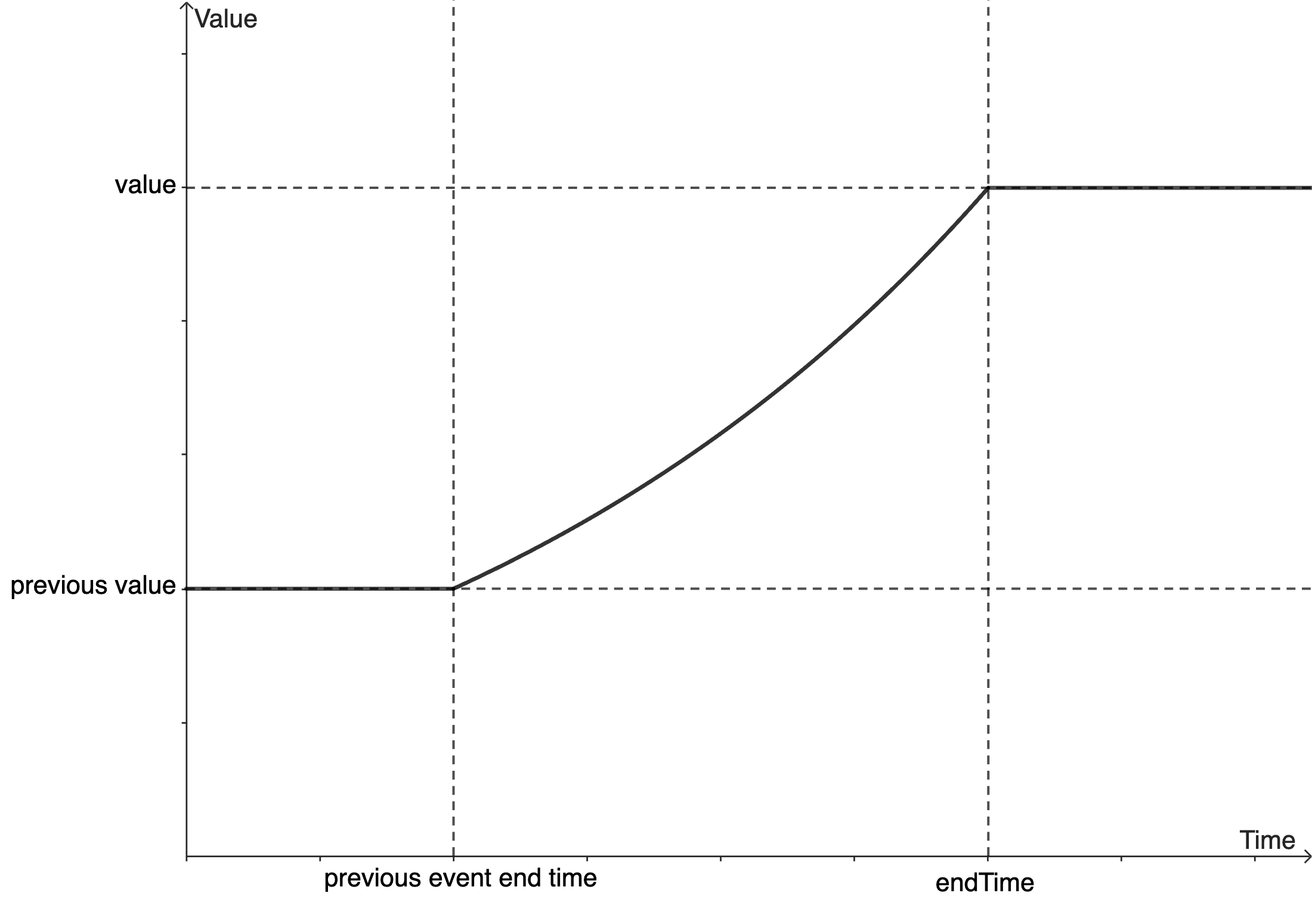
| Parameters | Type | Description |
|---|---|---|
value | number | A float representing the value the AudioParam will ramp to by given time. |
endTime | number | The time, in seconds, at which the value ramp will end. |
Errors
| Error type | Description |
|---|---|
RangeError | endTime is negative number. |
Returns AudioParam.
setTargetAtTime
The above method schedules a gradual change to the new value at the start time. This method is useful for decay or release portions of ADSR envelopes.
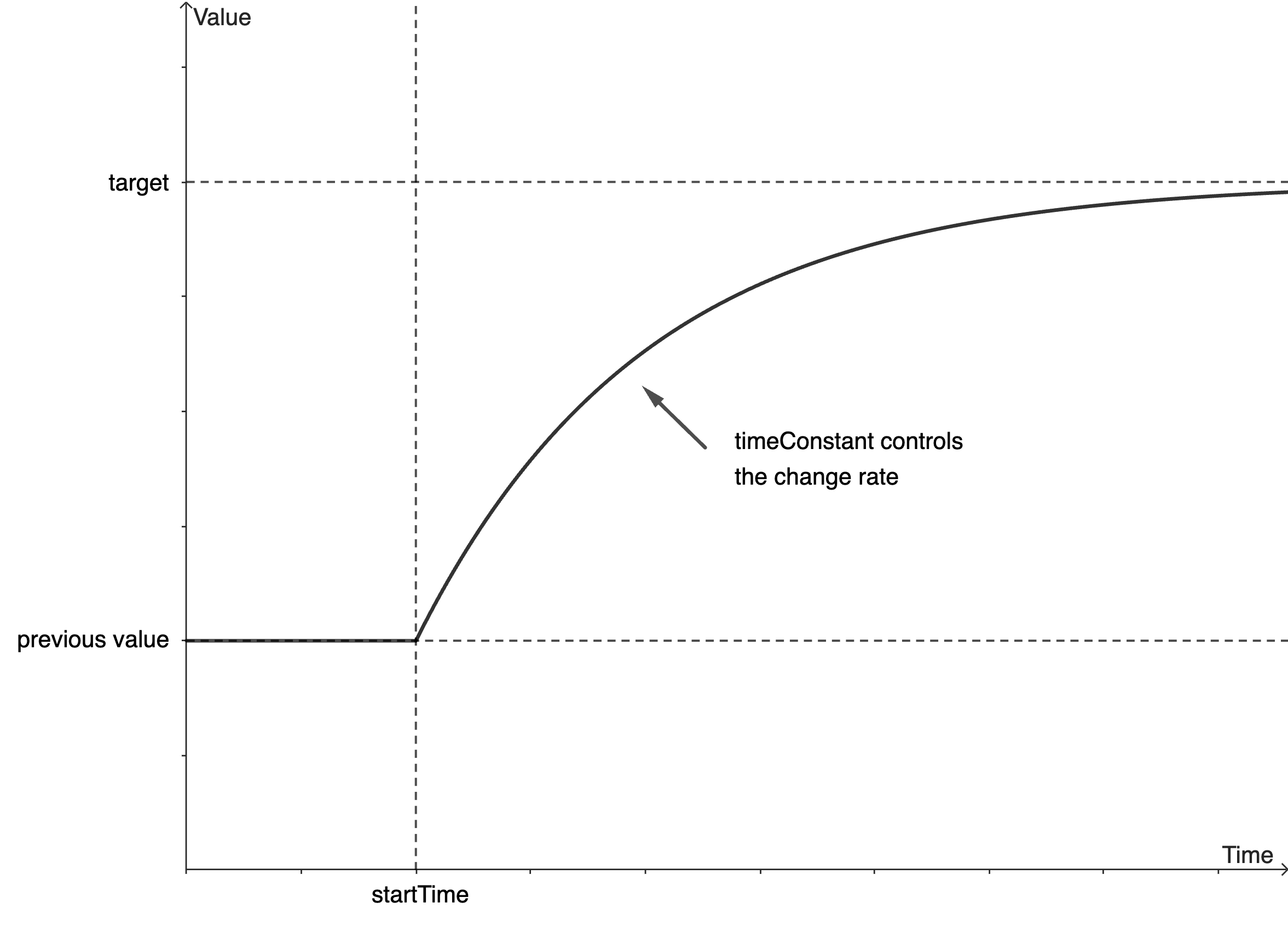
| Parameters | Type | Description |
|---|---|---|
target | number | A float representing the value to which the AudioParam will start transitioning. |
startTime | number | The time, in seconds, at which exponential transition will begin. |
timeConstant | number | A double representing the time-constant value of an exponential approach to the target. |
Errors
| Error type | Description |
|---|---|
RangeError | startTime is negative number. |
RangeError | timeConstant is negative number. |
Returns AudioParam.
setValueCurveAtTime
The above method schedules the parameters's value change following a curve defined by given array.
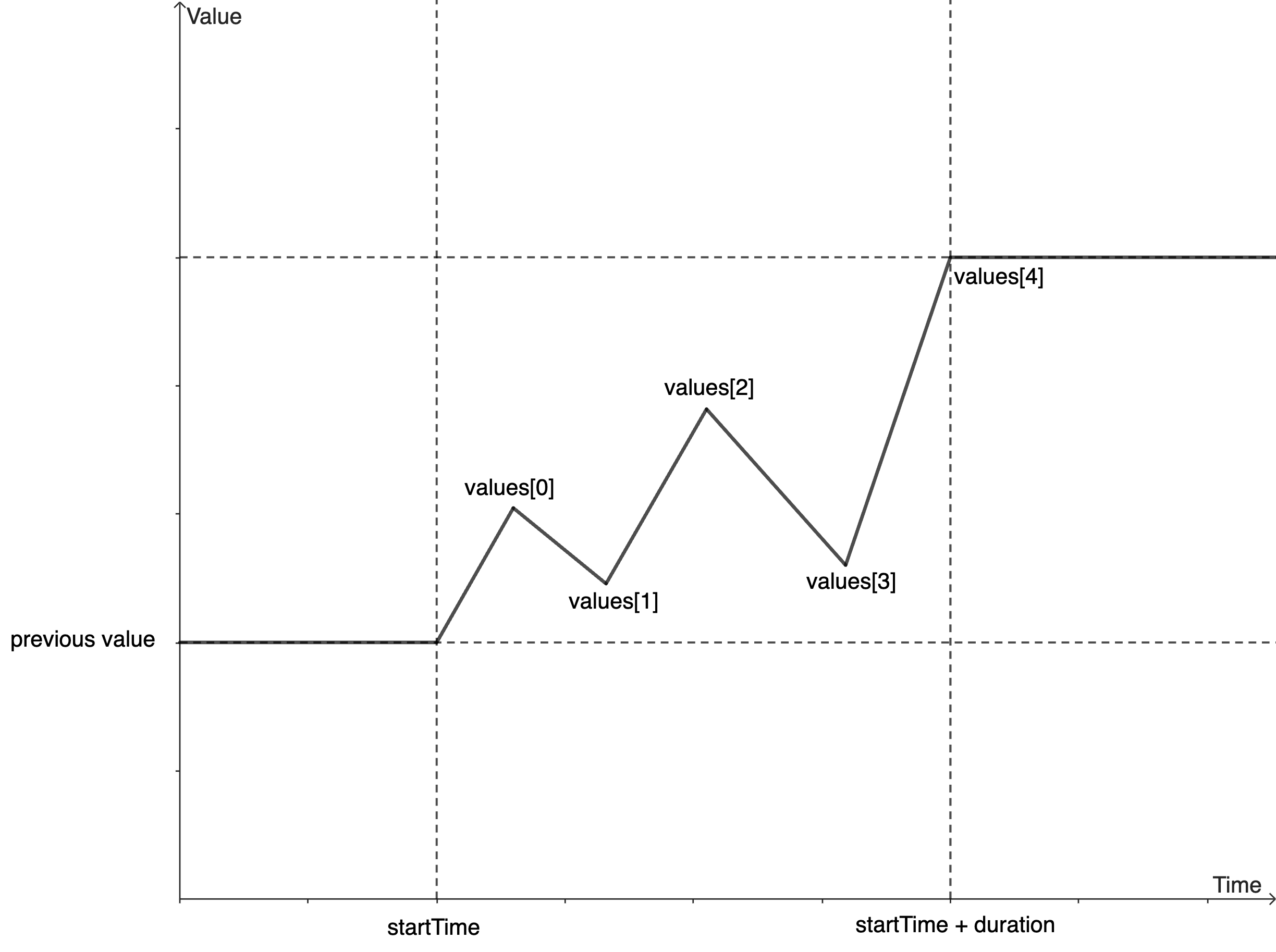
| Parameters | Type | Description |
|---|---|---|
values | Float32Array | The array of values defining a curve, which change will follow. |
startTime | number | The time, in seconds, at which change will begin. |
duration | number | A double representing total time over which the change will happen. |
Errors
| Error type | Description |
|---|---|
RangeError | startTime is negative number. |
Returns AudioParam.
cancelScheduledValues
The above method cancels all scheduled changes after given cancel time.
| Parameters | Type | Description |
|---|---|---|
cancelTime | number | The time, in seconds, after which all scheduled changes will be cancelled. |
Errors
| Error type | Description |
|---|---|
RangeError | cancelTime is negative number. |
Returns AudioParam.
cancelAndHoldAtTime
The above method cancels all scheduled changes after given cancel time, but holds its value at given cancel time until further changes appear.
| Parameters | Type | Description |
|---|---|---|
cancelTime | number | The time, in seconds, after which all scheduled changes will be cancelled. |
Errors
| Error type | Description |
|---|---|
RangeError | cancelTime is negative number. |
Returns AudioParam.
Remarks
All time parameters should be in the same time coordinate system as BaseAudioContext.currentTime.